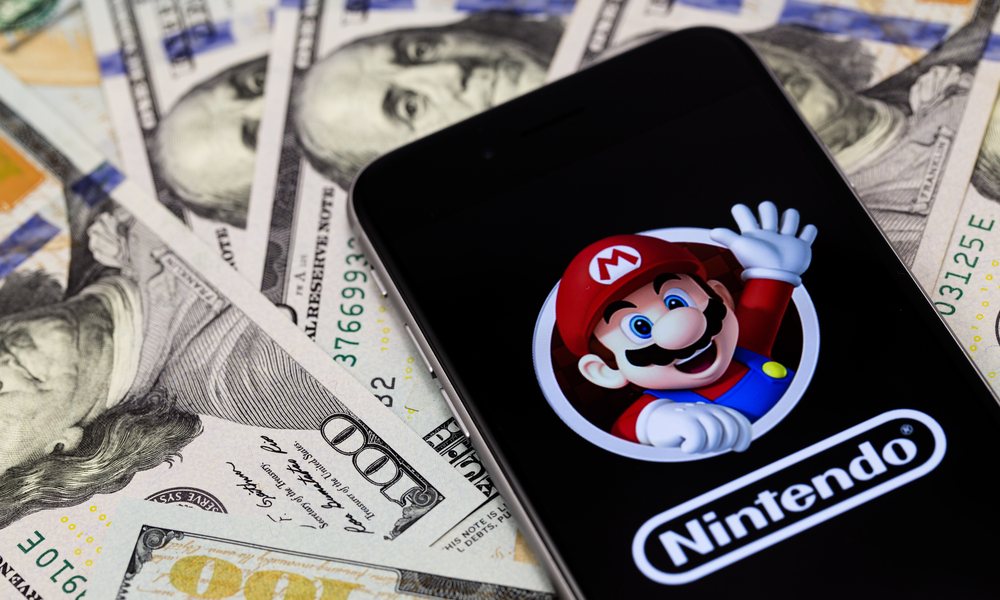Nintendo Says In-App Purchases are Tarnishing Its Reputation
 Credit: Primakov / Shutterstock
Credit: Primakov / Shutterstock
Toggle Dark Mode
There’s been an unfortunate shift in mobile gaming over the past several years from the era of great premium paid games to a new “freemium” model that threatens to drain players’ wallets while allowing developers to rake in considerably more money.
While nobody is suggesting that developers don’t deserve to get paid reasonably well for their efforts — and in-game currency systems often provide for a recurring stream of revenue in the way that traditional “pay-once” games don’t — the danger of moving to a revenue model driven by in-app purchases is that it’s way too easy to do wrong, creating apps that seem to always have their hand out asking the user to pour more money at them to make any real progress.
Now it looks like Nintendo has come to the same conclusion, advising its partners who develop smartphone games under the company’s branding that they need to tone down on in-app purchases. The Wall Street Journal reports that several of Nintendo’s game partners have been told by the company to adjust their games so that users aren’t required to spend too much money on in-app purchases.
Nintendo considers the smartphone games released under its brand to simply be marketing fodder that it hopes will encourage users to buy the company’s traditional console games, according to one Nintendo official. As a result, the company is concerned about tarnishing its brand image by appearing to be too greedy in its smartphone games.
Of course Nintendo has long been known for traditional prepaid games on its console platform, but of course console games also sell for $30-$50 — considerably more than the $5-$10 that even the best games on the App Store can garner.
This has some of Nintendo’s gaming partners suggesting that perhaps the company isn’t living in the real world, since the inability to get consumers to spend real money on games upfront leaves in-app purchases as their only source of revenue.
Nintendo is not interested in making a large amount of revenue from a single smartphone game. If we managed the game alone, we would have made a lot more.
Representative for Nintendo development partner CyberAgent
The Journal cites CyberAgent, the development partner behind Nintendo’s “Dragalia Lost,” as one example. The company was forced to slash its fiscal-year earnings forecast for the first time in 17 years, at least in part due to the game’s disappointing performance. An aggressive advertising campaign with Nintendo provided an increase in players, the revenue from each player fell short of the company’s projections.
On the other hand, DeNA, which famously developed Super Mario Run and Animal Crossing under the Nintendo brand, suggested that a big part of the issue is that the smartphone gaming business in general is in a slump, and that most of the company’s games have been struggling recently, although it’s own branded game Megido 72 is actually seeing stronger user revenue.
A spokesperson for Nintendo acknowledged that the company does discuss things like user payments with its game development partners, but stopped short of discussing the specifics of such communications.
We discuss various things, not just limited to payments, to deliver high-quality fun to consumers.
Nintendo spokesperson
While many analysts and investors were excited by Nintendo’s very late entry into the smartphone gaming market, the modest goals set by the company provides further evidence that Nintendo isn’t taking smartphone gaming particularly seriously, ultimately just using it to provide exposure for their core brand, which remains focused on console gaming.
Regardless of the ultimate purpose behind Nintendo’s move, however, it’s clear that many developers could stand to take a long and sober look at whether they are relying too much on the “low hanging fruit” of in-app purchases to monetize their apps, and start exploring other ways to generate revenue from their games.






